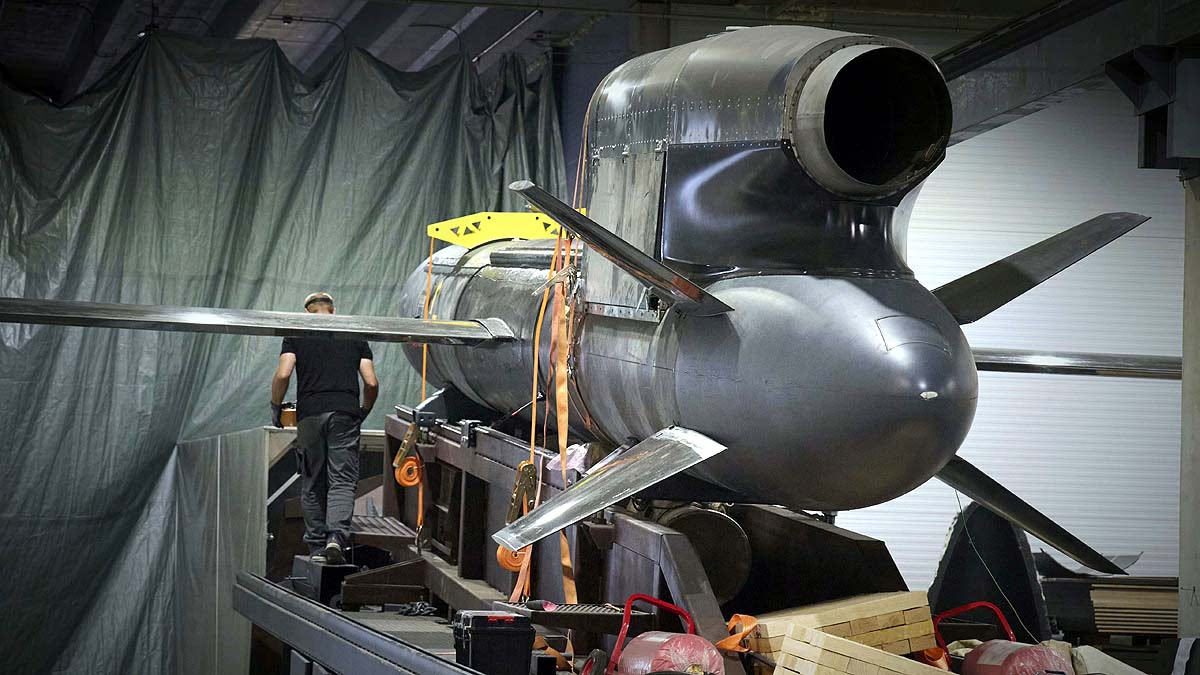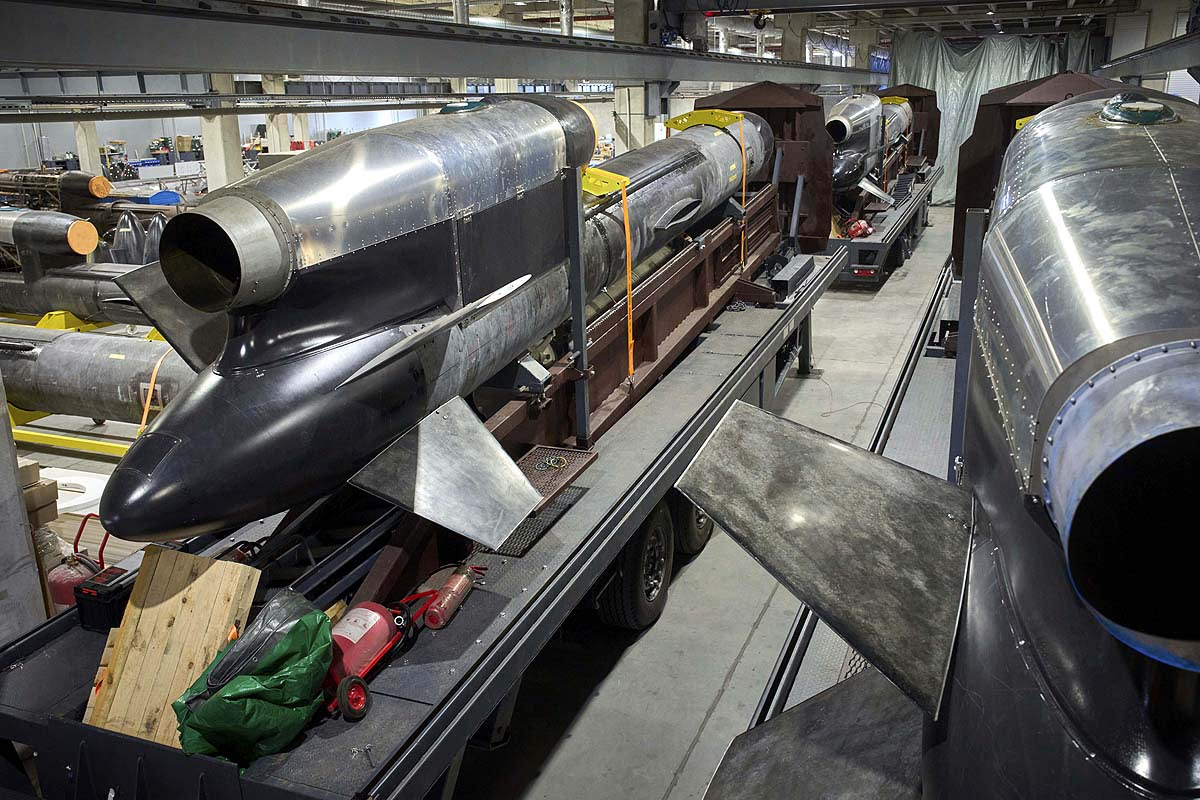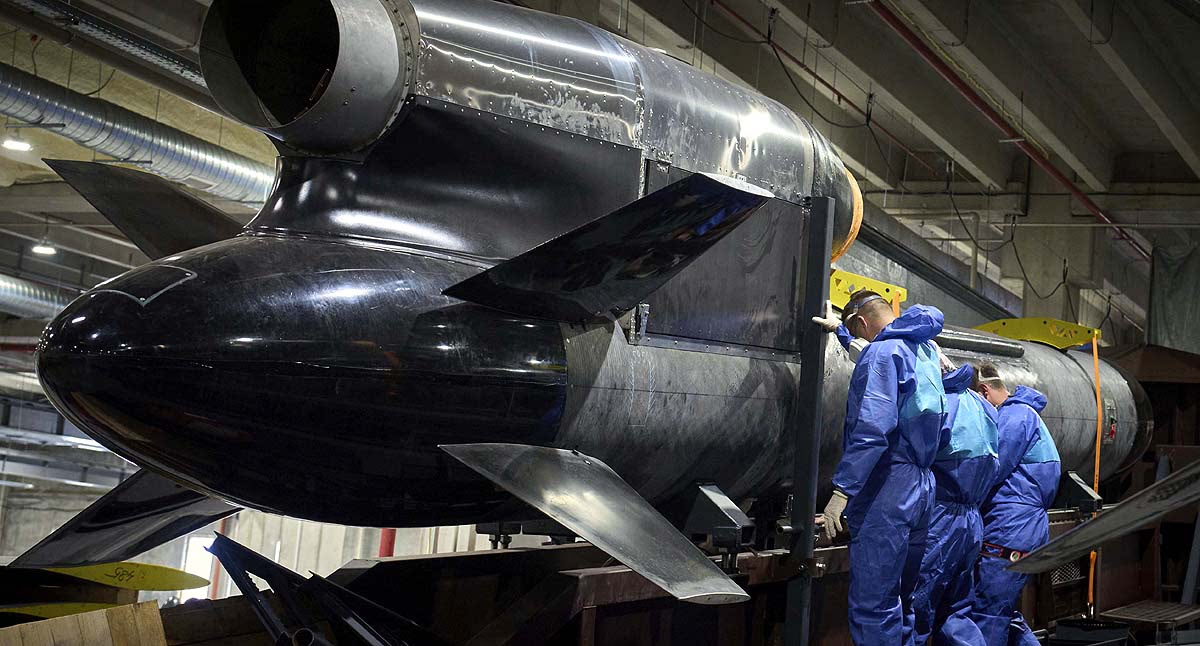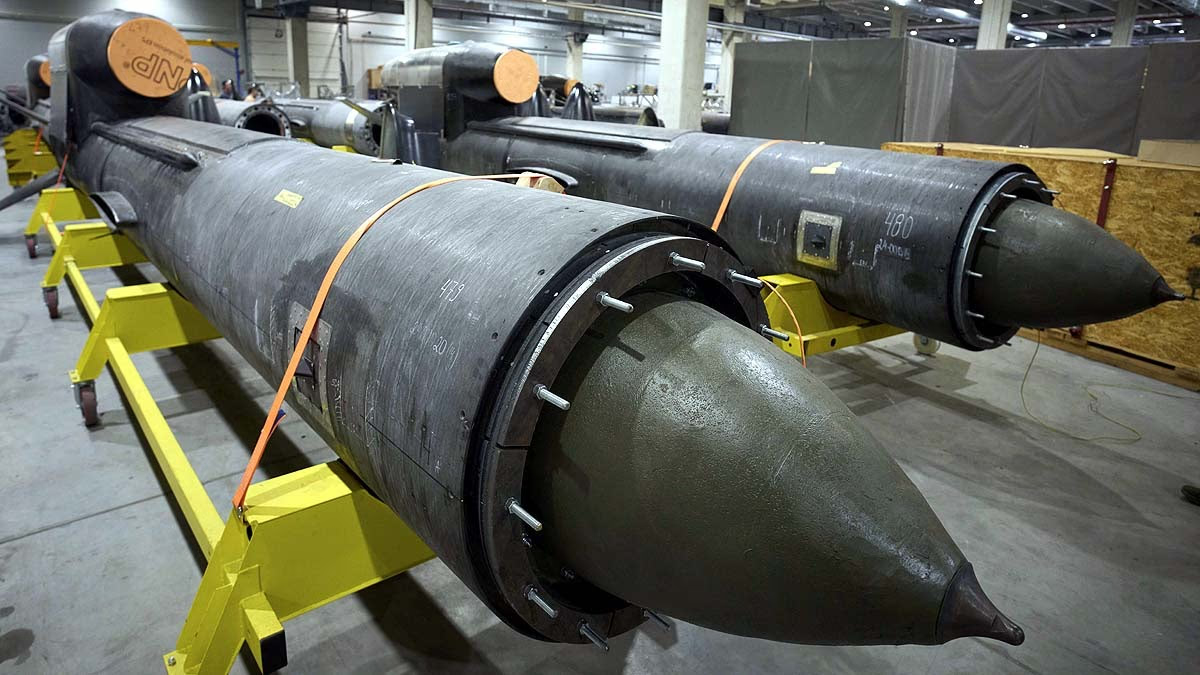The ongoing conflict between Ukraine and Russia is taking a more perilous turn. Ukraine recently unveiled its new Flamingo cruise missile, capable of striking targets up to 3,000 kilometers away. With this missile, Ukraine aims to target Russian military bases, oil depots, the Kremlin, Su-57 fighter jets, Tu-95 bombers, and aircraft carriers.
What Makes the Flamingo Missile Special?
Flamingo is a state-of-the-art cruise missile developed by Ukraine's Fire Point company. It incorporates technology from the UAE and the British company Millanine Group's FP-5 missile. Key features include:
Range: 3000 km, allowing it to strike Moscow, St. Petersburg, and far-flung Siberia.
Warhead: 1,150 kilograms (1.15 tons) of explosives, capable of devastating large military installations.
Weight and Size: Total weight of 6 tons with a wingspan of 6 meters.
Speed: Travels at 850-900 km/h, with a maximum speed of 950 km/h.
Navigation: Equipped with INS/GPS and CRPA (anti-jamming) systems to evade Russian electronic warfare measures.

Source: aajtak
Ukraine's Goal: Delivering a Significant Blow to Russia
According to Ukraine, the Flamingo missile is designed to weaken Russia's military and economic structures. Potential targets include:
Kremlin: Russia's power center in Moscow, a symbolic and strategic target.
Su-57: Russia's fifth-generation stealth fighter, valued at $35 million, symbolizing its air strength.
Tu-95: A Soviet-era bomber used for launching Kh-101 cruise missiles, employed in attacks on Ukrainian cities.
Aircraft Carrier: Russia's Kuznetsov aircraft carrier stationed in the Black Sea could also be targeted.
Oil Depots and Military Bases: Targets include Russia's Shahed drone factory (Yelabuga), oil refineries, and weapon depots, critical to Russia's war machinery.
Ukrainian Defense Minister Denis Shmayhal stated that this is a powerful, long-range missile now in their arsenal. The missile highlights Ukraine's indigenous weapons capabilities, especially as Western weapon supplies dwindle.
Operation Spider Web: A Display of Ukrainian Might
The Flamingo missile's reveal comes in the wake of Ukraine's successful Operation Spider Web on June 1, 2025, where they destroyed or damaged 41 Russian military aircraft. Ukraine employed 117 drones hidden in trucks to attack five Russian airbases (Belaya, Olenya, Ivanovo, Dyagilevo, and Ukrainka). It led to the destruction of Tu-95, Tu-22M3, and A-50 aircraft, valued at $7 billion, marking a significant blow to Russia's nuclear-capable aviation capacity.
This strike left Russia stunned. Ukraine's Security Service (SBU) executed this operation after 18 months of planning, showcasing their clandestine and technical prowess.

Source: aajtak
Why Is This Missile Dangerous?
The Flamingo missile's 3,000 km range presents a substantial threat to Russia. It can attack Moscow (800 km from Ukraine) and beyond into Siberia. It's compared to Nazi Germany's V-1 flying bomb and America's MGM-13 Mace missile but is equipped with modern technology.
Massive Warhead: Its 1,150 kg warhead can inflict heavy damage on oil refineries and military factories.
Cost-Effective: Compared to expensive Russian aircraft, this missile offers a cost-effective means for Ukraine to launch attacks.
Mass Production: Millanine Group can produce 50 missiles per month. Production in Ukraine is rapidly increasing.
Despite this, Russia's air defense systems, particularly around Moscow, are formidable. Flamingo will need decoy drones (like the US's MALD) and electronic warfare equipment to evade these defenses.

Source: aajtak
Russia's Response
Russia views the missile's unveiling as an escalation of the war. Russian Foreign Minister Sergey Lavrov has indicated that Ukraine's actions could hinder peace negotiations. Russia has warned of a potential retaliatory strike using the Oreshnik ballistic missile (traveling at 3,000 km/h with temperatures of 4,000 degrees Celsius).
Ukraine's Strategy
Ukraine aims to damage Russia's economic and military framework. President Volodymyr Zelenskyy has emphasized their commitment to defending their freedom and people. Ukraine has already conducted drone attacks on Shahed drone factories and oil refineries; the Flamingo missile will further bolster this strategy.
Ukraine plans to produce 100 missiles in 2024 and aims to domestically manufacture 40% of its weapons by 2025. Missiles like Palyanitsya (500-700 km range) and Neptune (famously sinking the Russian ship Moskva) are part of this arsenal.




